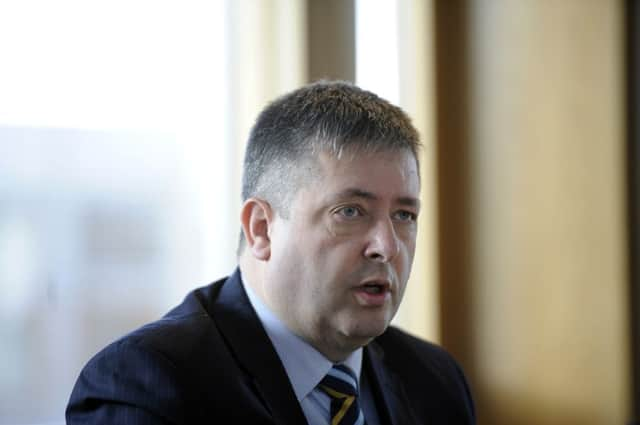Scotland ‘failing disabled hate-crime victims’


He also said families encourage victims not to dial 999 because they fear repercussions.
Frank Mulholland QC, speaking from a hate crime conference in Glasgow yesterday, stressed both police and prosecutors had improved their approach, but the legacy of historic failures remained a problem. He pointed to Crown Office figures which showed just 68 crimes with a disabled “aggravator”, compared to more than 4,000 involving race in 2011-12.
Advertisement
Hide AdAdvertisement
Hide AdThe number of disability-aggravated crimes rose to 138 in 2012-13, but remained dwarfed by other types of hate crime.
The Offences (Aggravation by Prejudice) Act 2009 means crimes motivated by hatred, such as that for a person’s race, sexuality or disability, can result in a tougher sentence. However, it has failed to sufficiently improve reporting among disabled victims, targeted because they are considered vulnerable.
Mr Mulholland said: “There’s a significant under-reporting. It is a huge issue in relation to disabled hate crime. It is quite clear they have been advised in the past to turn the other cheek.”
He added: “That’s an historic problem. Law enforcement in general, in the past, has not given enough attention to this, including the Crown Office.
He also said ignoring abuse or harassment in the hope it will go away has had disastrous consequences.
“When you get small criminality at the bottom end of the spectrum, it can turn into serious criminality, such as assault or even people killed, and there have been examples of that in Scotland,” Mr Mulholland said.
Mr Mulholland hopes to persuade victims that they can report without fear of repercussions: “What I would say to them is, law enforcement agencies will take it seriously. There’s a zero tolerance approach to this type of behaviour.”
It is not the first time concerns have been raised about the under-reporting of crime against the disabled.
Advertisement
Hide AdAdvertisement
Hide AdThe UK-wide Equality and Human Rights Commission study, Hidden in plain sight, found disabled people were more likely to fall victim to crime than those without a disability.
It concluded: “We found that the extent of harassment remains largely hidden; its seriousness rarely acknowledged, its link to the victim’s disability not investigated.”
Capability Scotland said it was heartened by the increased focus on encouraging victims to come forward. A spokeswoman said: “Capability Scotland welcomes the increased focus on disability hate crime by the Crown Office and Police Scotland and hopes that this will make disabled people feel more confident about reporting hate crime than they have in the past.”
Assistant Chief Constable Ruaraidh Nicolson told yesterday’s conference: “I can think of few more important areas of Police Scotland’s work than keeping those who are, perhaps, more vulnerable due to some form of disability, safe from those who commit prejudicial acts against them.”